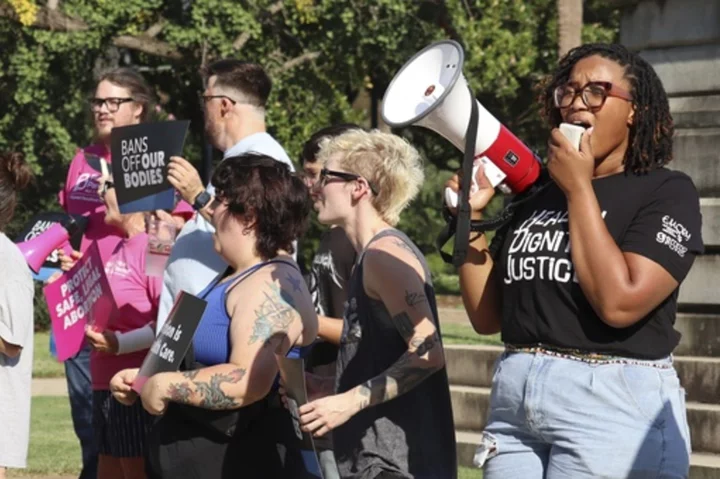
South Carolina abortion ban with unclear 'fetal heartbeat' definition creates confusion, doctors say
The South Carolina Supreme Court upheld a ban on most abortions this week but left undecided the question of when, exactly, the “fetal heartbeat” limit begins during pregnancy
2023-08-25 12:59

Backers blast approved ballot language for Ohio's fall abortion amendment as misleading
The Ohio Ballot Board has approved language for a fall abortion measure that Democrats and the issue's backers are criticizing as inaccurate
2023-08-25 07:15

Elle King opens up about her ‘deep depression’ during pregnancy and two-year postpartum journey
Elle King has spoken out about suffering with a “deep depression” during and after her pregnancy. The singer, 34, took to Instagram on Wednesday (23 August) to speak candidly about her mental health, two years after welcoming her son, Lucky, who she shares with tattoo artist Daniel Tooker. Her post included different videos of herself, in which she was working out, cleaning her skin, or singing on a stage. In the caption, she went on to reflect on her weight loss journey throughout the last two years, and acknowledged that she still plans to continue her workout routine. “I am making this post to share my journey from 284 lbs at 5‘3 from pregnancy 2021 - now 2023,” she wrote. “It doesn’t happen overnight. It didn’t even happen in a year for me. In fact, it’s an ongoing still working towards ever changing goals kinda thing.” King continued her post by opening up about her mental health struggles - both during and after her pregnancy - which included postpartum depression. “I fell into a very deep depression during my pregnancy. I also didn’t even realise how intense postpartum depression is and was until I very slowly began to crawl out,” she wrote. “I felt trapped in my body.” While symptoms of postpartum depression can vary, some of them can include difficulty bonding with your baby, withdrawing from loved ones, and a loss of appetite, according to the Mayo Clinic. In her Instagram caption, King went on to explain that amid her symptoms of postpartum depression, she started working out more. She then acknowledged that she’s now seen her body get “stronger” over time. “Metabolic workouts. Light cardio to warm up my body, my lungs, my voice, and my spirit. I am a creature of habit, so I changed my f***ing habits,” she wrote. “Every few weeks I feel my body getting stronger. I add more workouts.” The “Ex’s & Oh’s” singer expressed that while she wanted to lose weight after welcoming her baby, there was “so much more” insentive since her brain “functions better on the days” that she moves her body. She also described how she’s now embraced the way that her body looks. “Some days I count stretch marks. Some days I hug myself and say thank you to my body. Today is a kind day. I’ve been tiny, I’ve been huge, BUT RIGHT NOW I’M HEALTHY,” she continued. “I can’t believe that I even have to say this, but no, I am not on any weight loss medication.” She added that she’s had a few health conditions over the years, including being pre-diabetic and suffering with Polycystic ovary syndrome (PCOS). PCOS is a condition that consists of “problems with hormones that happens during the reproductive years,” as noted by the Mayo Clinic. Symptoms can range from irregular periods to polycystic ovaries, which are “follicles containing immature eggs may develop around the edge of the ovary”. King continued her message by sharing that her “diabetic grandfather died” when she was 10-years-old, after she “watched him prick his finger and give himself shots”. She concluded by showing her support for her followers, and by sharing the goal of her workout routine, writing: “I do not judge anyone who is trying to live a healthier life. I can only share MY OWN JOURNEY! I just hope to live a long, wonderful, healthy life where I can drink a lot, eat fish, laugh as much as I can, and die happy.” This isn’t the first time that King has been open about some of the health challenges she has faced. When announcing her pregnancy in 2021, during an interview with People, she revealed that she’s had struggles with infertility, explaining that she previously suffered two pregnancy losses due to her PCOS. “It’s such a major thing that so many people go through, but it’s so secretive - like you have to go through it alone,” she said about the pregnancy loss. “Nobody talks about it. It’s like you’re supposed to feel shame; like you’re not supposed to tell people before 12 weeks, because if you lose it, it’s going to be embarrassing for you and you don’t want other people to get their hopes up. Like, holy s***.” Read More New mother filmed doing laundry seven days after giving birth sparks debate ‘It can hit everyone’: Postnatal depression is surging, and it’s still misunderstood Olivia Munn opens up about her postpartum body 20 months after giving birth Sienna Miller pregnant with her second child Serena Williams celebrates second pregnancy with ‘pre-push party’ Lisa Snowdon opens up about ‘tortured thoughts’ after abortion: ‘Was that my chance?’
2023-08-24 23:59
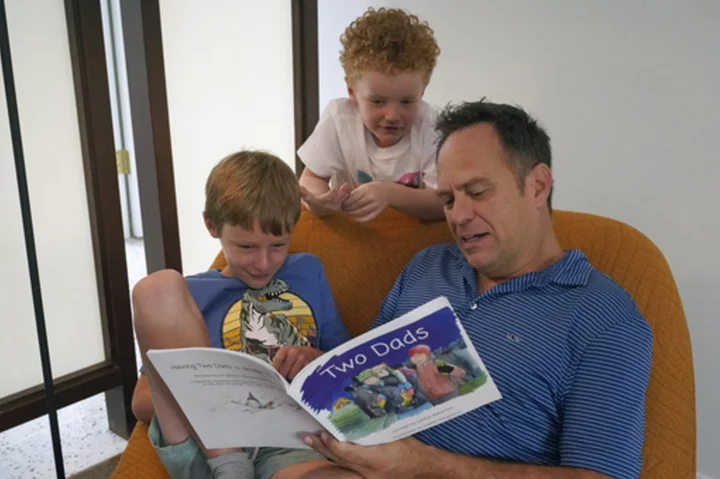
Bans on diverse picture books? Young kids need to see their families represented, experts say
Across the country, books and lessons that represent different families and identities are increasingly the target of conservative pushback — even when they're for the youngest of learners
2023-08-24 21:22
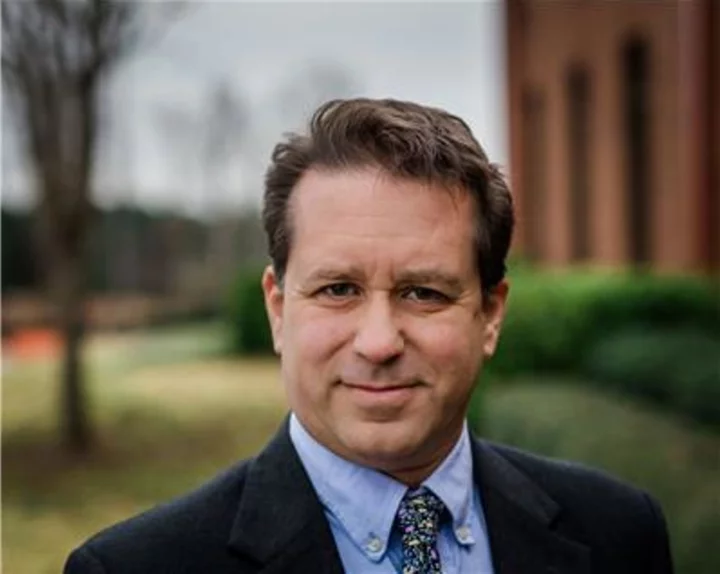
Amerigroup Georgia Collaborates With Renowned Parenting Expert and Foster Care Advocate Dr. John DeGarmo for Statewide “Tour” to Address Urgent Foster Care Challenges
ATLANTA--(BUSINESS WIRE)--Aug 24, 2023--
2023-08-24 18:46
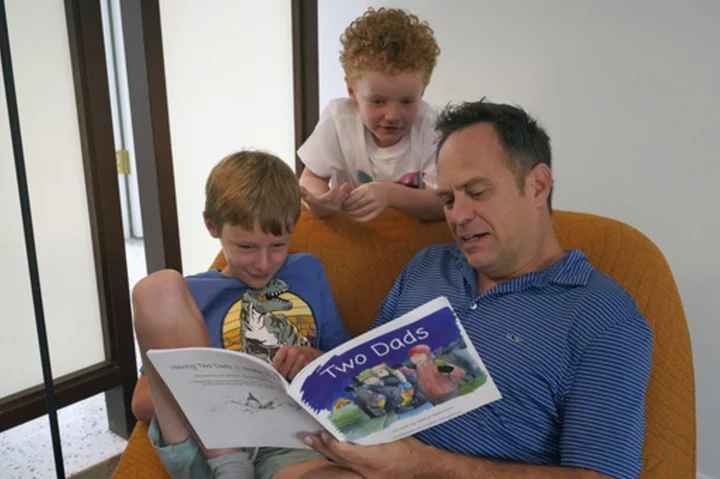
Bans on diverse board books? Young kids need to see their families represented, experts say
Across the country, books and lessons that represent different families and identities are increasingly the target of conservative pushback — even when they're for the youngest of learners
2023-08-24 12:27
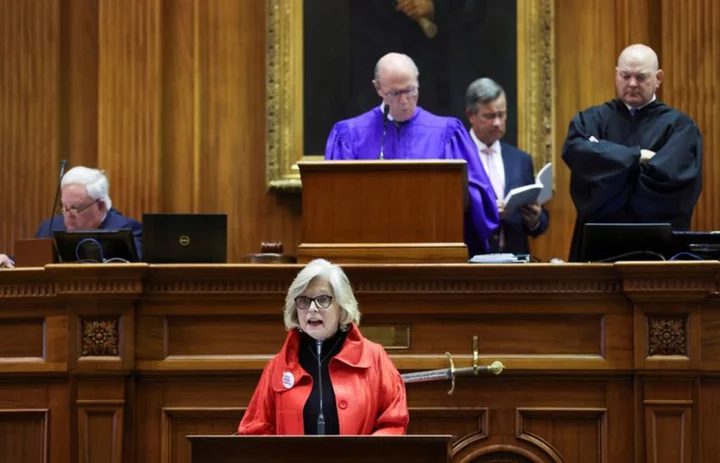
South Carolina's top court upholds state's 'heartbeat' abortion ban
By Brendan Pierson South Carolina's highest court on Wednesday upheld a new state law banning abortion after fetal
2023-08-23 23:47

South Carolina's new all-male highest court reverses course on abortion, upholding strict 6-week ban
South Carolina's new all-male Supreme Court has reversed course on abortion, upholding a ban on most such procedures after just weeks of pregnancy
2023-08-23 23:19
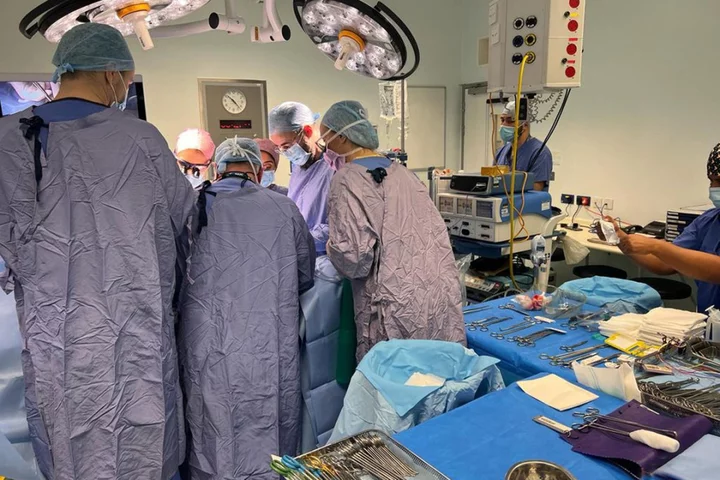
Everything you need to know about the UK’s first womb transplant
The UK’s first womb transplant means that, in future, dozens of women born without a functioning organ can carry babies of their own. – What has happened? Surgeons have performed the UK’s first womb transplant on a 34-year-old woman whose older sister donated the organ to her. In a complex procedure, the medical team removed the womb from the 40-year-old woman and implanted it directly into her sister. Both women have made a good recovery. – Have any babies been born? Not yet. Experts want to be sure the transplant is stable and the womb is functioning fully before the younger woman undergoes IVF. She has stored eight embryos and will have fertility treatment later this year in central London. The woman hopes to have more than one baby. Once she has completed her family, the womb will be removed to prevent her needing immunosuppressant drugs for the rest of her life. – Has the NHS paid for the operation? No. Each womb transplant costs around £25,000 and is fully funded by the charity Womb Transplant UK. This includes payment to the NHS for theatre time and the patient’s stay on a ward. The operations are only carried out at times when the NHS is not using the operating theatre, so they do not impact on usual NHS waiting lists. Surgeons and medical staff involved in the transplant have not been paid for the operation and have given their time freely. – Have other womb transplants been carried out around the world? More than 90 womb transplants have been carried out internationally, with most operations involving a living donor. The first successful womb transplant took place in Sweden in 2014, with the baby – Vincent – born to a 36-year-old woman who described him as “perfect”. In 2000, a transplant was performed on a 26-year-old woman in Saudi Arabia but the donor womb survived for only 99 days due to problems with its blood supply. To date, womb transplants have been carried out in more than 10 countries, including Saudi Arabia, Turkey, Sweden, the US, China, Czech Republic, Brazil, Germany, Serbia and India. – How successful is the operation? Data from the US shows that more than half of women who received a womb through a transplant in the US went on to have successful pregnancies. Between 2016 and 2021, 33 women received womb transplants in the US and, as of last summer, 19 of them (58%) had delivered a total of 21 babies. In 74% of those receiving a womb, the organ was still functioning one year after transplant and 83% of this group had live-born children. – Will there be more transplants in the UK? Yes. The second British womb transplant is scheduled to take place this autumn and experts believe a maximum of 20 to 30 per year could be carried out in the UK in the future. Transplants could help women born without a functioning womb and those who lose their organ to cancer or other conditions. Estimates suggest there are 15,000 women in the UK of childbearing age who do not have a functioning womb. – Will there be a shortage of donor wombs? Womb Transplant UK is running two programmes, one involving living donors and another with organs from people who have died. The living donor programme in the UK has so far focused on women with relatives who are willing to give their wombs. However, the team believes that in the future, the living donor programme will expand to include friends or altruistic living donors. This is currently more common in the US. The use of deceased donors is assessed by the team on a case-by-case basis. Read More Charity boss speaks out over ‘traumatic’ encounter with royal aide Ukraine war’s heaviest fight rages in east - follow live Why are wellbeing experts concerned about the ‘lazy girl job’ trend? How to check for cancer, as Morrisons puts NHS cancer advice in underwear labels Prostate screening ‘could save lives’ – the symptoms and risk factors you need to know
2023-08-23 15:45

Employee arrested after 1-year-old child dies in daycare van in Nebraska
A childcare employee has been arrested after a 1-year-old child died Monday after being left in a daycare van, police in Omaha, Nebraska, said.
2023-08-23 08:15
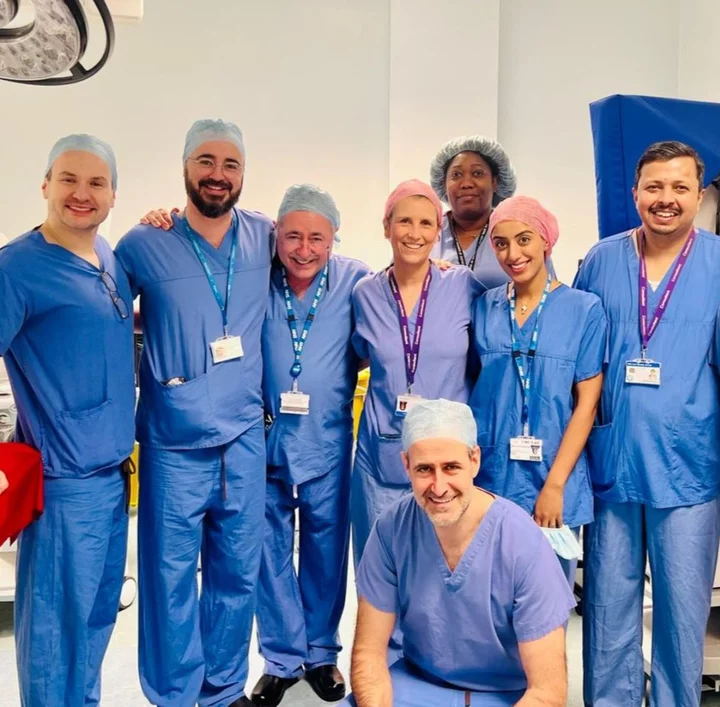
How did surgeons carry out Britain’s first womb transplant?
Surgeons worked all day and into the night to ensure Britain’s first womb transplant went smoothly. Its success is down to meticulous research, years of sharing knowledge between experts around the globe, and the hard work and dedication of doctors Professor Richard Smith, from Imperial College London, and Isabel Quiroga, from the Oxford Transplant Centre. Around 50 babies have been born worldwide as a result of womb transplants, which give women missing a functioning uterus a chance to have a baby. In the first UK case, the operation to remove the womb from the recipient’s 40-year-old sister lasted eight hours and 12 minutes, with surgeons leaving her ovaries behind to prevent pushing her into early menopause. One hour earlier, surgeons began operating on the 34-year-old recipient, preparing her body to receive the donated organ. This operation lasted nine hours and 20 minutes, with the surgical team experiencing some difficulties including a higher-than-expected blood loss of two litres. However, after just 10 days, the recipient was well enough to leave the hospital and has continued to have a good recovery. She is also having regular periods, which shows the womb is working well. Her sister was discharged five days after her donor operation and has also made a good recovery. Removing a womb is a similar operation to a radical hysterectomy, according to Prof Smith, who as well as being a gynaecological surgeon is the clinical lead at the charity Womb Transplant UK. He and Miss Quiroga led the team of more than 30 staff who worked on the transplant one Sunday in February. Prof Smith and Miss Quiroga removed the older sister’s womb, cervix and fallopian tubes, plus crucial blood vessels around the organ. The main vessels are the uterine arteries running into the womb, but the surgeons also aimed to collect some of the larger internal vessels that lead into the smaller branch of the womb. Prof Smith said surgeons doing these operations have to retrieve veins involved in the drainage of the womb. “One of the amazing things is that my surgical skill-mix as a cancer surgeon is to remove organs with a margin of normal tissue, while sealing the vessels as I go,” he said. “Transplant surgical skills are different – that is to remove a normal organ with the best number of non-sealed vessels as you can. “Isabel and I operate together with no ego – it just flows backwards and forwards across the table.” He added: “The day itself was truly humbling. We turned up at 7am at the Churchill transplant centre with the donor and the recipient families, then we went into a pre-op huddle. Those in the huddle included surgeons, nurses, anaesthetists and technicians. Prof Smith and Miss Quiroga worked to remove the womb, before the organ was prepared for transplantation by a “back table” team. “This was an organ which had a very, very unusual blood supply,” Prof Smith said. “In fact, it had a set of blood vessels which I’ve never seen in my entire career. They made my dissection a bit harder than it might have been, but we got there.” In the theatre next door, one hour before the retrieval of the womb was completed, surgeons began to operate on the donor’s younger sister to enable her to receive the womb. Prof Smith and Miss Quiroga switched from donor to recipient and Prof Smith removed the vestiges of the underdeveloped womb the recipient was born with. Meanwhile, the organ was packed and transported between the two theatres under sterile conditions to prevent contamination. A sterile bag with a cold perfusion solution contained the womb, which was then placed into a container with ice. During surgery, ligaments attached to the womb were attached to the recipient to help the womb stay in a relatively fixed place so it does not move around the pelvis. The most important part of the transplant operation was the joining of the very small vessels that give the blood supply to the womb. This was the most delicate and difficult part of the operation and was led by Miss Quiroga. Once all the vessels were connected, the donor’s vaginal cuff – around a 1cm part – was stitched into her sister’s vagina. If and when the recipient is able to complete her family, the womb will be removed six months later to prevent her from needing immunosuppressants for the rest of her life. Prof Smith said: “We know that the chance of failure at the point where the uterus goes in – if you look at the world literature – is 20 per cent to 25 per cent. And that failure is usually on the basis on sepsis and thrombosis. So technically, we are up to the job, but what happens thereafter can be scary. “Once you get to three or four days later, the chance of failure drops to probably less than 10 per cent. “Once you get to two weeks – and at the point where the woman has a period – the chance of her having a baby at that point is very high and the chance of failure has dropped to low. But those first two weeks – it’s very scary as a surgeon to watch and wait.” Biopsies to check the womb was functioning were read in London but then also confirmed by an expert team in the US at Baylor University Medical Centre in Dallas, where other womb transplants have been performed. Prof Smith said the procedure gives new hope to women born with devastating conditions. He said: “You’ve got girls, maybe 14, who have not had periods, they go to the GP and a scan shows there is no uterus. Absolute catastrophe. “Up until now, there’s been no solution for that, other than adoption or surrogacy... That’s not the case now. It’s really exciting.” On whether transgender women may also benefit from the operation, Prof Smith said that was still a long way off. He said the pelvic anatomy, vascular anatomy and shape of the pelvis are different, and there are microbiome issues to overcome. “My own sense is if there are transgender transplants that are going to take place, they are many years off. There are an awful lot of steps to go through. My suspicion is a minimum of 10 to 20 years.” Miss Quiroga said the living donor programme to date in the UK has focused on women with relatives who are willing to give their wombs. “It will come to a point where we will have friends or altruistic donors, like we have with many other transplants, but at the moment we’re only focused on people who have come forward with relatives,” she said. Read More Bursts of activity that make you huff and puff ‘linked to reduced cancer risk’ Fiona Phillips, 62, reveals she has Alzheimer’s disease Woman has all her teeth removed after rare vomiting condition causes them to fall out Bursts of activity that make you huff and puff ‘linked to reduced cancer risk’ Fiona Phillips, 62, reveals she has Alzheimer’s disease Woman has all her teeth removed after rare vomiting condition causes them to fall out
2023-08-23 07:19
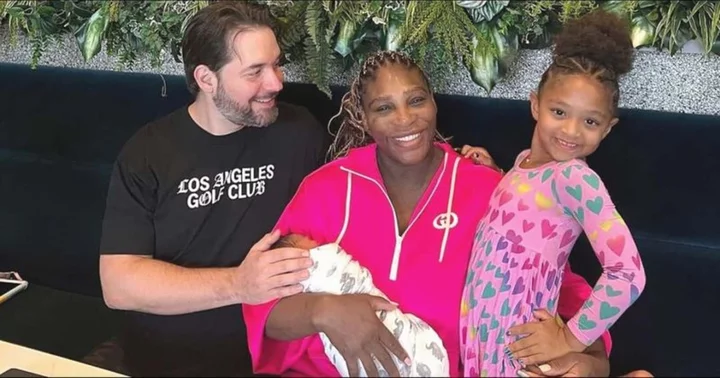
What did Serena Williams name her baby? Tennis star announces birth of second daughter with husband Alexis Ohanian
Serena Williams shared a video of her and Alexis Ohanian embracing and kissing each other before their firstborn, Olympia, jumps into her arms
2023-08-23 05:45
You Might Like...
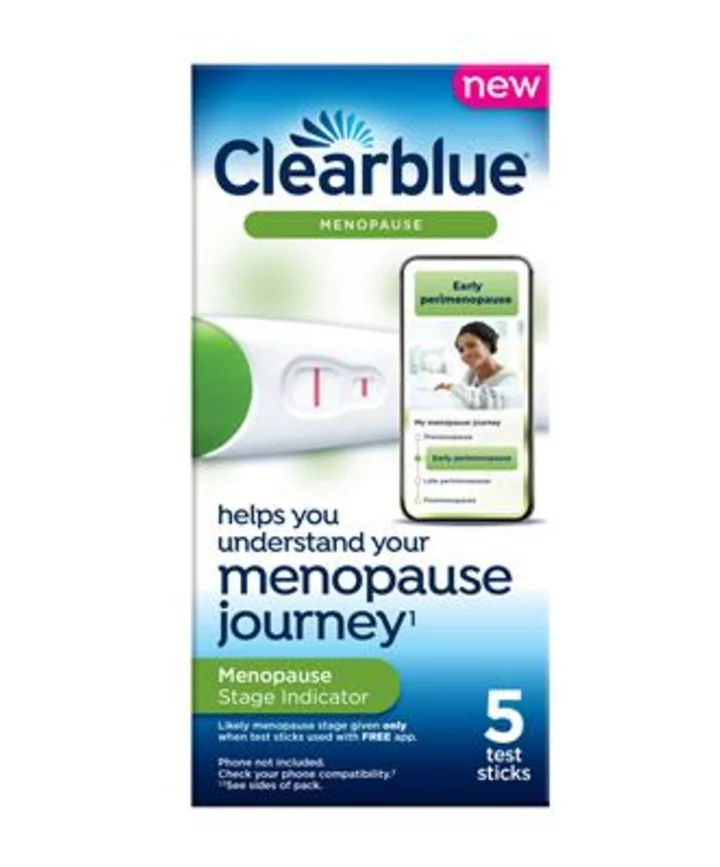
Clearblue® Launches First Ever At-Home Product That Can Indicate a Woman’s Current Stage of Menopause¹

Does Dixie D'Amelio have premenstrual dysphoric disorder? Here's what we know
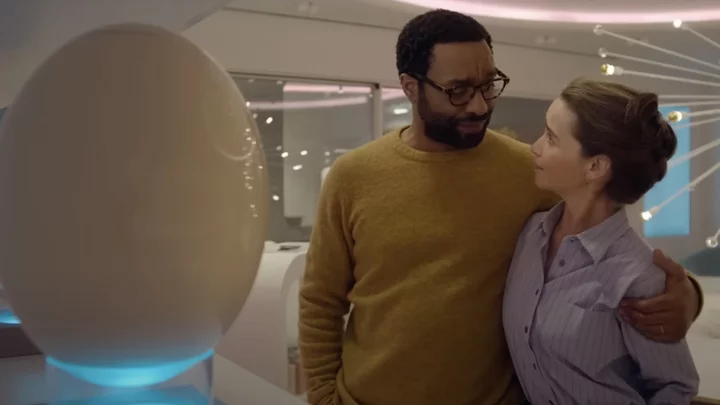
'The Pod Generation' trailer teases a future where pregnancy is outsourced to egg devices
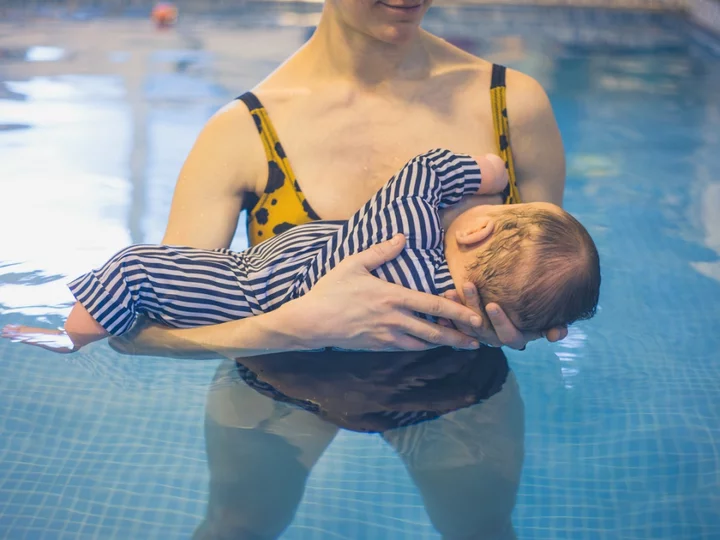
Breastfeeding mother left ‘upset and appalled’ after water park told her to stop nursing son in lazy river

Nebraska governor to sign 12-week abortion ban, limits on gender-affirming care for minors
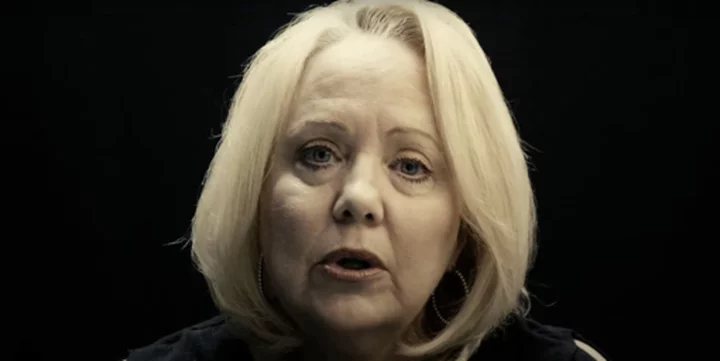
Abortion anecdote from DeSantis at GOP debate is more complex than he made it sound
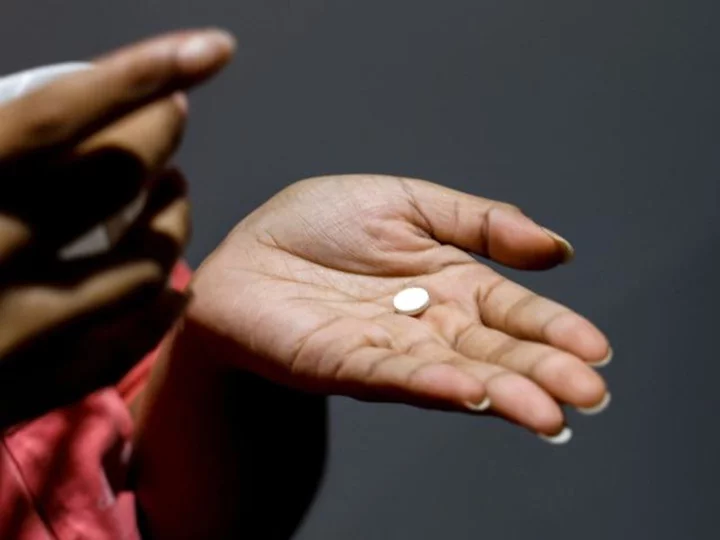
New York State Legislature passes bill to protect doctors who prescribe abortion pills for out-of-state patients
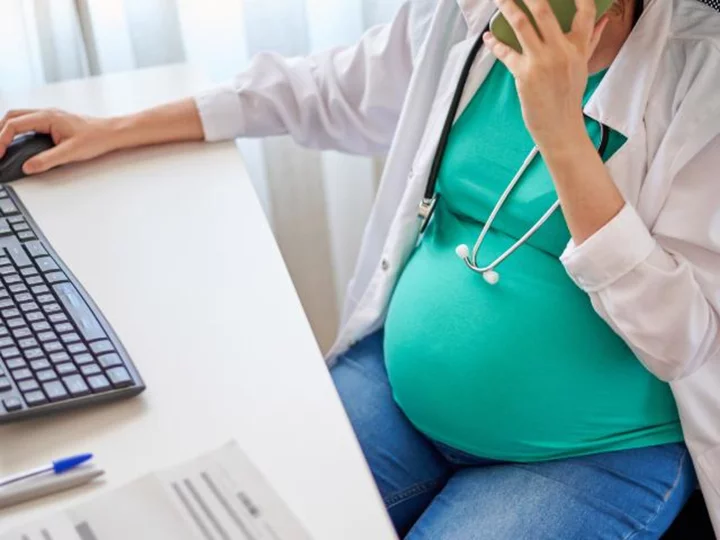
Pregnant workers and nursing moms have new protections on the job
